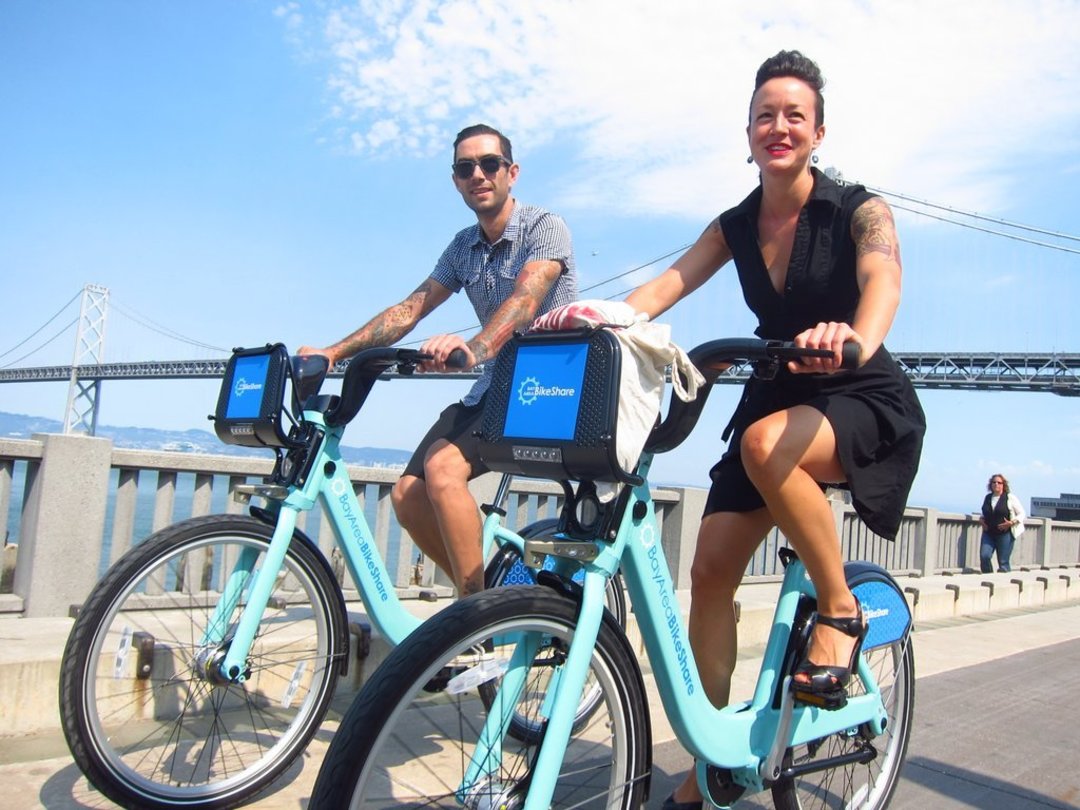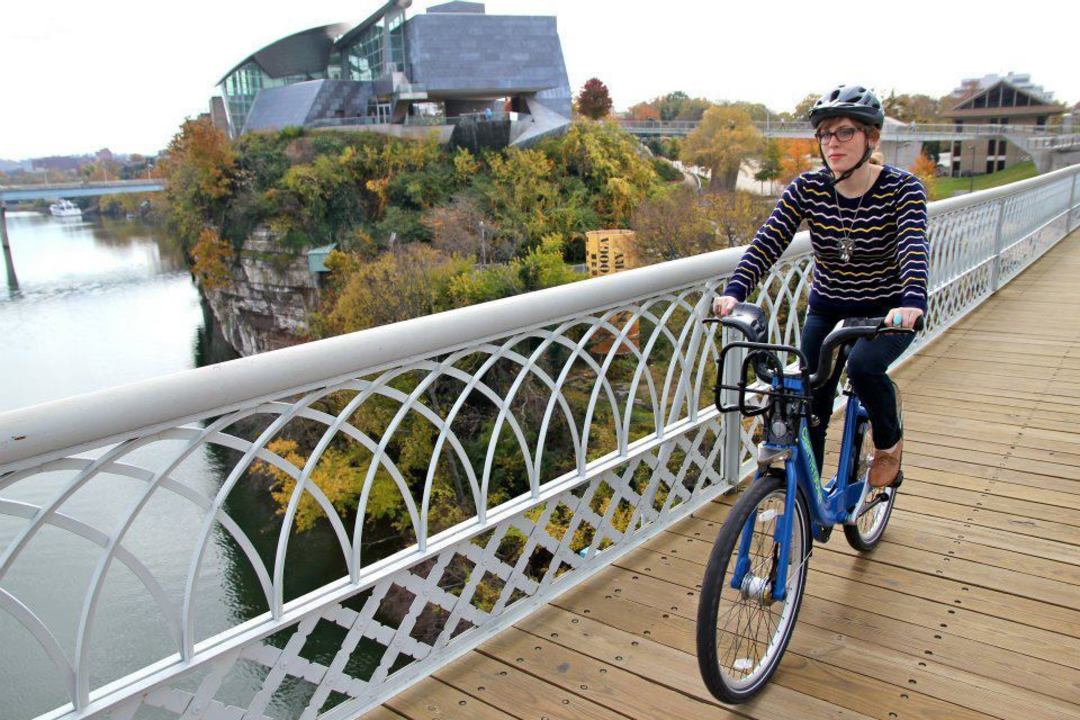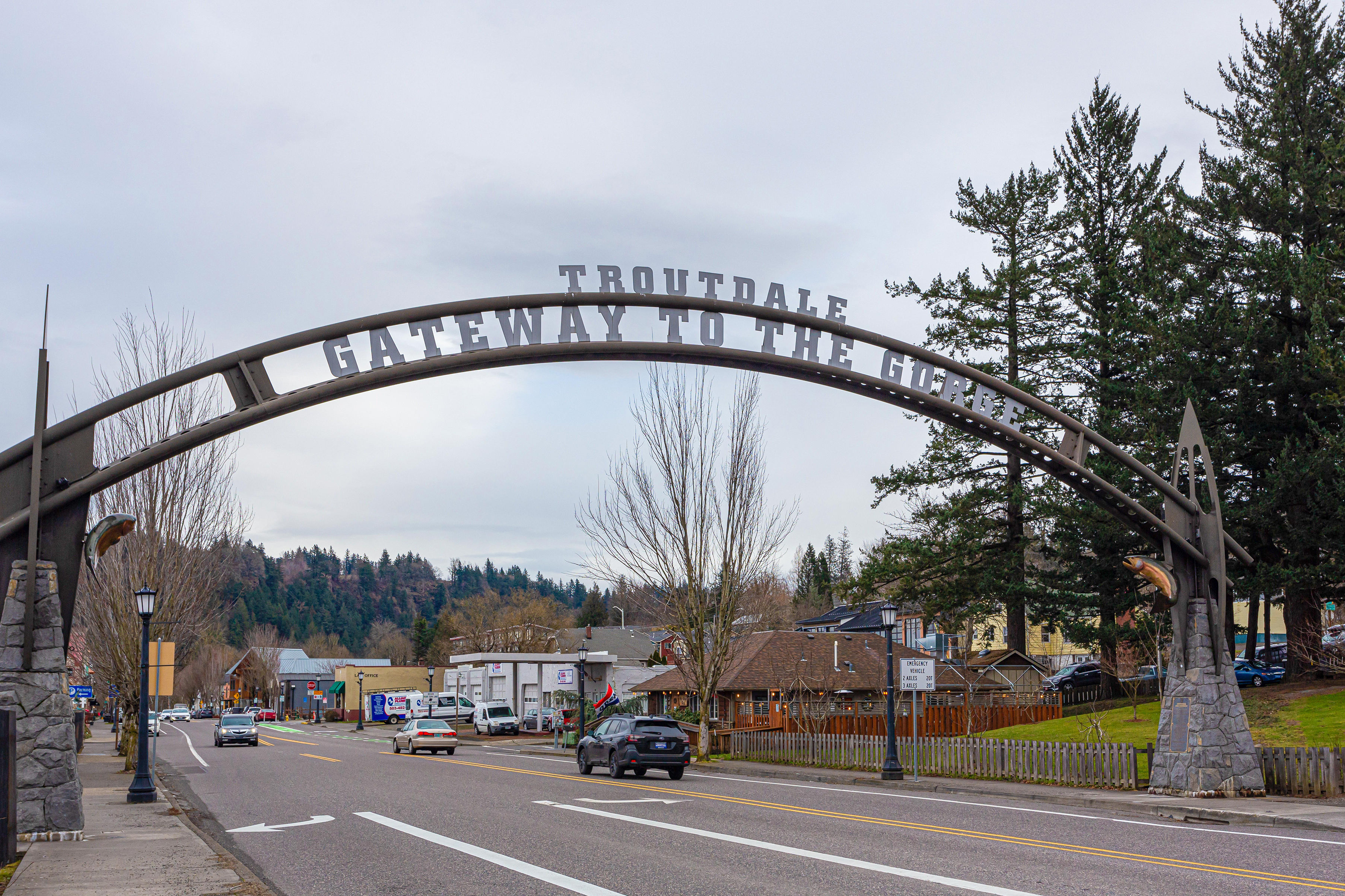How Will Bike Share Help Portland?

Strange times in Portland: a city that fancies itself one of the most progressive around has been fighting over who should run the sewers, freaking out about increasing urban density, and bracing for a populist revolt over a propose pothole tax. (Sorry: "transportation user fee.") Meanwhile, the really cool stuff—our bridge with no cars, for example—seems to float off in the future somewhere: under construction, almost there, not happening yet.
Likewise bike-sharing: the automated public bike check-out stations that have become beacons of urban sophistication (and sometimes controversy) in New York, DC, Chicago, London, and elsewhere. Portland has approved a bike-share program and even selected our own homegrown Alta Bicycle Share—North America's largest bike-share company—to operate the future system. The system itself, however, is a little TBD, and probably not happening until 2015 at the earliest as budgetary and logistical issues and a search for a potential major sponsor work themselves out. (Chicago just signed Blue Cross/Blue Shield as its program's sponsor, to the tune of $12.5 million.)
Meanwhile, the somewhat tentative character of Portland's plans leaves room for questions about whether Portland actually needs a bike-sharing system. Don't we already have, like, lots of bikes?

The definitive answer to that one is, of course, in the eye of the beholder. Some people are still gripped by a strange Nixonian rage whenever they spy two-wheeled, human-powered transport (just check out the comments on any OregonLive story on cycling), while others regard bikes as the future of civilization. But to check in on one key perspective, we talked to Alta Bicycle Share's Mia Birk. Before cofounding the firm, Birk helped spearhead Portland's bike Renaissance with the city's transportation department and wrote a book, Joyride, about cycling's potential role in individual and community health. Alta already runs eight bike-sharing programs in North America and Australia, providing Birk—who obviously has skin in the game, as they say—with plenty of evidence in her case for Portland's adoption.
Q. As some have pointed out, Portland already has a lot of bikes on the roads. What's the potential niche for bike sharing here? DC is a perfect example of how things can work. So many people live in the suburbs and work in the city, and they’re not bringing their bikes into the city. And yet they ride bikes at home, and they’re comfortable with biking, so when they have an opportunity to bike during their day, they’re very happy to do so. Maybe they find their parking place and use bike-share to run all their errands, or they take the train into the city and use bike-share to make it to their meetings. People ask, will it work in Portland, and do we need it, given that so many people already bike? And my answer is that it will absolutely work, precisely because Portlanders are already so attuned to and comfortable with bikes.
You're a fairly avid cyclist already. How do you foresee this option fitting into your own life? I actually don't consider myself a particularly hardcore cyclist. I'm a normal person. I have three kids. I drive. I ride the bus or the streetcar. I walk. I do all these things—and I bike. So there will be days when it will be natural for me to drive to work, because I have to drop one of my kids off somewhere, but then I’ll ride a shared bike downtown for lunch. It will be natural for people all over the city: a Portland State student will be able to ride from the main campus to the new building in South Waterfront, even if he or she took the bus or the MAX or drove. You’ll go from downtown to Lloyd Center or vice versa for lunch on a bike, then get in your car and drive home. It’s a flexible and versatile tool.
And how does the possibility of bike share play into Portland's other, larger development issues? As Portland densifies, you’re going to see the public policies we adopted to help health and economic development really come to fruition. We started making policy to encourage density about 30 years ago. Now it’s really starting to happen. You only have to look at Southeast Division street: you can take the policy decisions back at least as far as the choice not to build the Mount Hood Freeway. And then we had the rezoning for more dense development along transit corridors, and the relaxed requirements to add parking for multifamily homes. The result is that there are and will be a lot more people living along Division Street who either don’t have cars at all or who use their cars much less than the average person does currently. Those people will be motivated to use every alternative at their disposal.
As systems have rolled out in big cities like New York and Chicago, there's been plenty of attention on day-to-day flaws and headaches. Stepping back from that, where do you see bike-sharing in five years, or ten? I think every city of any size will have a bike-share system. It’s going to be seen as a totally normal aspect of any transportation system, because it solves multiple problems. It’s a last-mile solution that adds to the flexibility of a system.




